STEM Resources
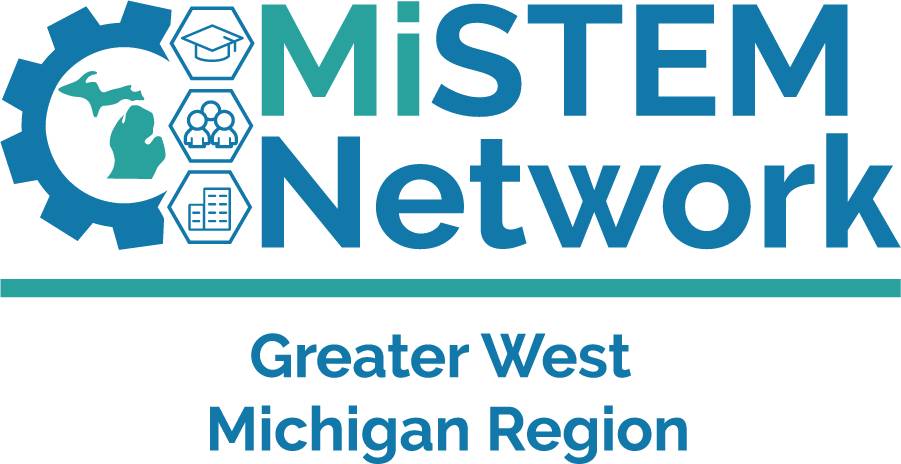
Educators are integral to Michigan's science, technology, engineering, and mathematics (STEM) ecosystem. Expert teachers, conveying the excitement of STEM through interdisciplinary, hands-on inquiry, and problem solving, are our most precious resource. Our region has many outstanding STEM teachers pre-K through college, as well as outside of formal learning environments.
Data Science

Bootstrap crafts free, research-based, integrated Data Science modules for Math, Science, Business and Social Studies classes grades 5-12:
- Leverage students' curiosity about the world around them to inspire real data analysis and original research.
- Lessons are available for data visualization, measures of center and spread, programming, linear regression, and more.
- Mix and match to create anything from a one-week intro to a full-year course!
- And when students have completed our K-12 materials, there's a smooth pathway all the way to Data Science in Python via the Data-Centric Introduction to Computing textbook!
Bootstrap:Data Science is a balanced curriculum, addressing the four ingredients of K-12 Data Science.
Download a one-page summary of the course.
Read the "Data Science & Algebra 2: Have your Cake, and Eat it, too!" article on the Bootstrap Blog.
Four Ingredients for K-12 Data Science | Emmanuel Schanzer | TEDxBoston

Week of Inspirational Math (WIM)
Choose your own maths adventure with interactive tools that allow you to build a custom playlist of inspirational maths activities and messages! Check out these pre-made playlists curated by the youcubed team for first grade, middle school and high school!
Data Science Movement
Jo Boaler and the youcubed team are co-leading a movement to integrate data science into K-12 mathematics, and preparing lots of resources to help teachers, as states across the US shift their goals to include data science. You can watch an introductory video here.
Data Science Lessons
This page shares five units of youcubed lessons for grades 6-10 that introduce students (and teachers) to data science.
The units start with an introduction to the concept of data and move to lessons that invite students to explore their own data sets. These lessons teach important content through a pattern-seeking, exploratory approach, and are designed to engage students actively. The culminating unit is a citizen science project that gives students an opportunity to conduct a data inquiry. The lessons accompany a new online course for teachers, where some of the lessons are featured, along with other lesson ideas. These lessons are offered with ideas for in-person or online teaching, and can be taught at any time of year.
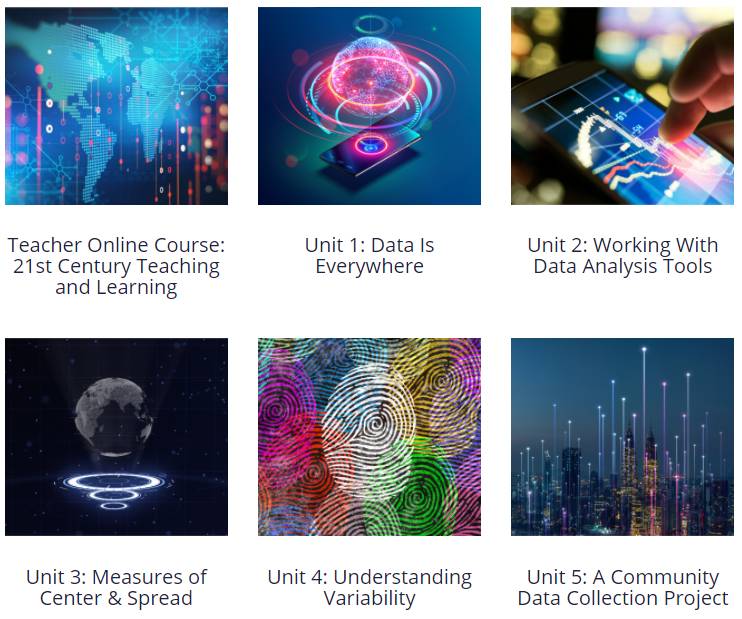
Data Talks
On this page, you can download a paper explaining what a data talk is, then try one or more of the data talks below with your students. Data talks are short 5-10 minute classroom discussions to help students develop data literacy. This pedagogical strategy is similar in structure to a number talk, but instead of numbers students are shown a data visual and asked what interests them. In a data talk the teacher does not have to be an expert in the topic of the data visualization – if a student asks a question, you can say that you do not know the answer but would love to find out, together! This is a nice opportunity to model not knowing, and embracing uncertainty. Data talks are intended to pique students’ curiosity and encourage question asking, and to help them understand and “read” the data-filled world in which they live.
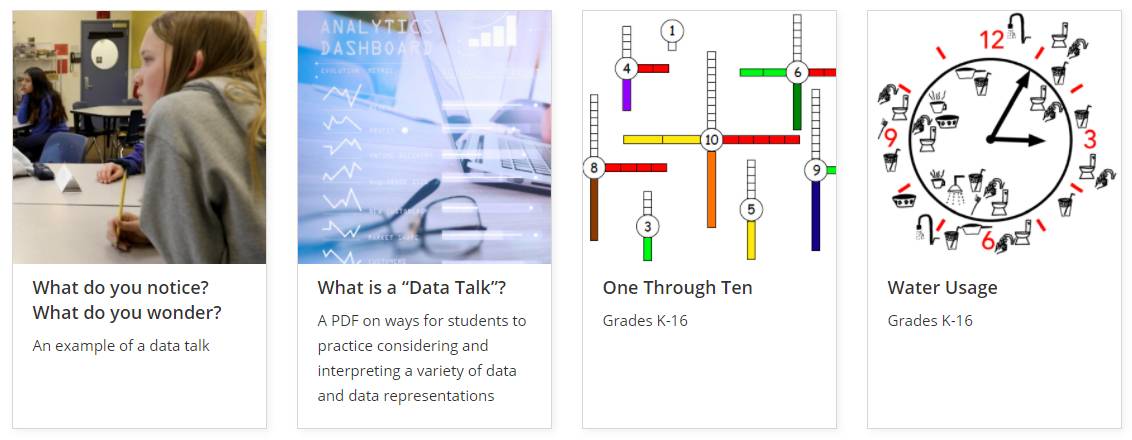
A Picture Book Introduction to Data Science
The youcubed team collaborated with graphic artists to create a picture book about data science and data literacy. They recommend that students discuss the different images and think about the messages they convey.
They are providing 4 versions of the picture book. One is a set of color posters, another is a set of black and white posters that could be colored by students. A third is a color booklet that is ordered in a way that you can organize into a printable 12-page booklet. Look at the posters or the thumbnails below to see the intended order of the pictures. The fourth is a black and white version of the booklet. The youcubed team hopes you and your students enjoy this resource!
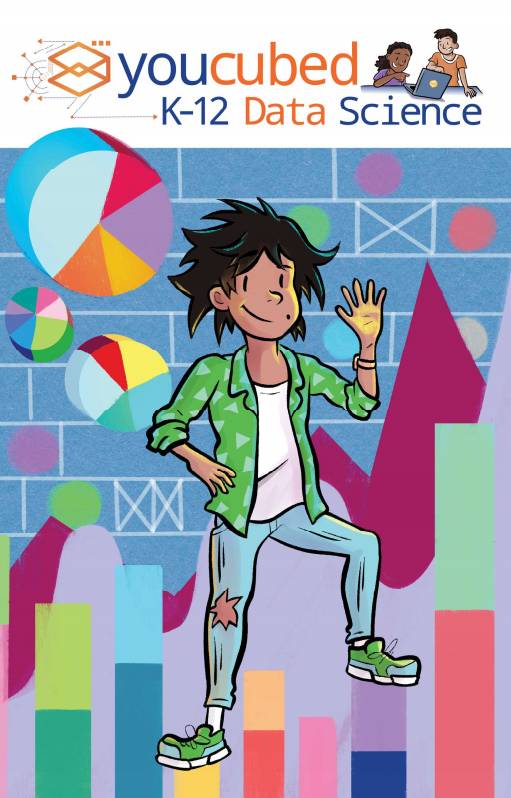
Cybersecurity

Are you a Kindergarten through 12th grade (K-12) teacher or educator looking to incorporate cybersecurity into your lesson plans? Do you want to help your students learn about cyber concepts and career opportunities?
Educating our nation’s youth is a huge responsibility. The Cybersecurity and Infrastructure Security Agency (CISA) is proud to help equip K-12 teachers with cybersecurity curricula, education tools, professional development workshops, and a plethora of other information and opportunities to help students succeed in cyber. CISA and other federal government agencies offer a variety of support, information, and resources for K-12 teachers to help their students become the next generation of cybersecurity professionals such as tip cards, videos, fact sheets, toolkits, and more. Click here for a list of cyber resources.
Elementary STEM Resources
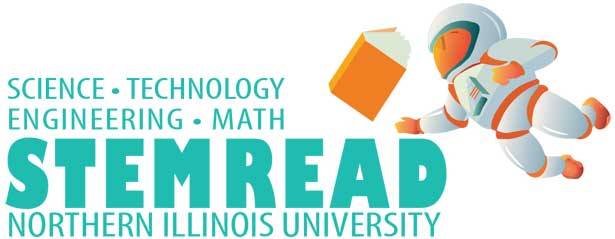
STEMRead uses live and online programs to inspire readers to learn more about the science, technology, engineering, and math concepts in popular fiction. STEMRead is a project of the Northern Illinois University (NIU) Center for P-20 Engagement.
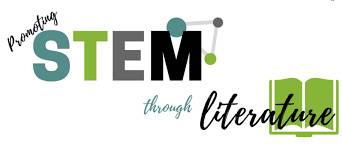
The Promoting STEM Through Literature resource was developed by Judy Bowling and Kerry Guiliano of the REMC Association of Michigan for elementary educators. Use literature to get your students excited about science, technology, engineering, and math (STEM) by actively involving them in the design thinking process. Each of the titles shares a story where something was built or invented by designing, planning, gathering materials, and creating. In addition to strengthening literacy skills, your students will develop inquiry and problem-solving skills. They will also see that with perseverance, anyone can be innovative and invent new things!
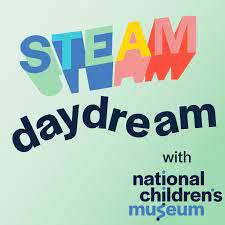
National Children’s Museum STEAM Resources include the STEAM Daydream Podcast where each month curious kids interview STEAM (Science, Technology, Engineering, Arts, and Math) innovators from across the country for answers to their burning questions.
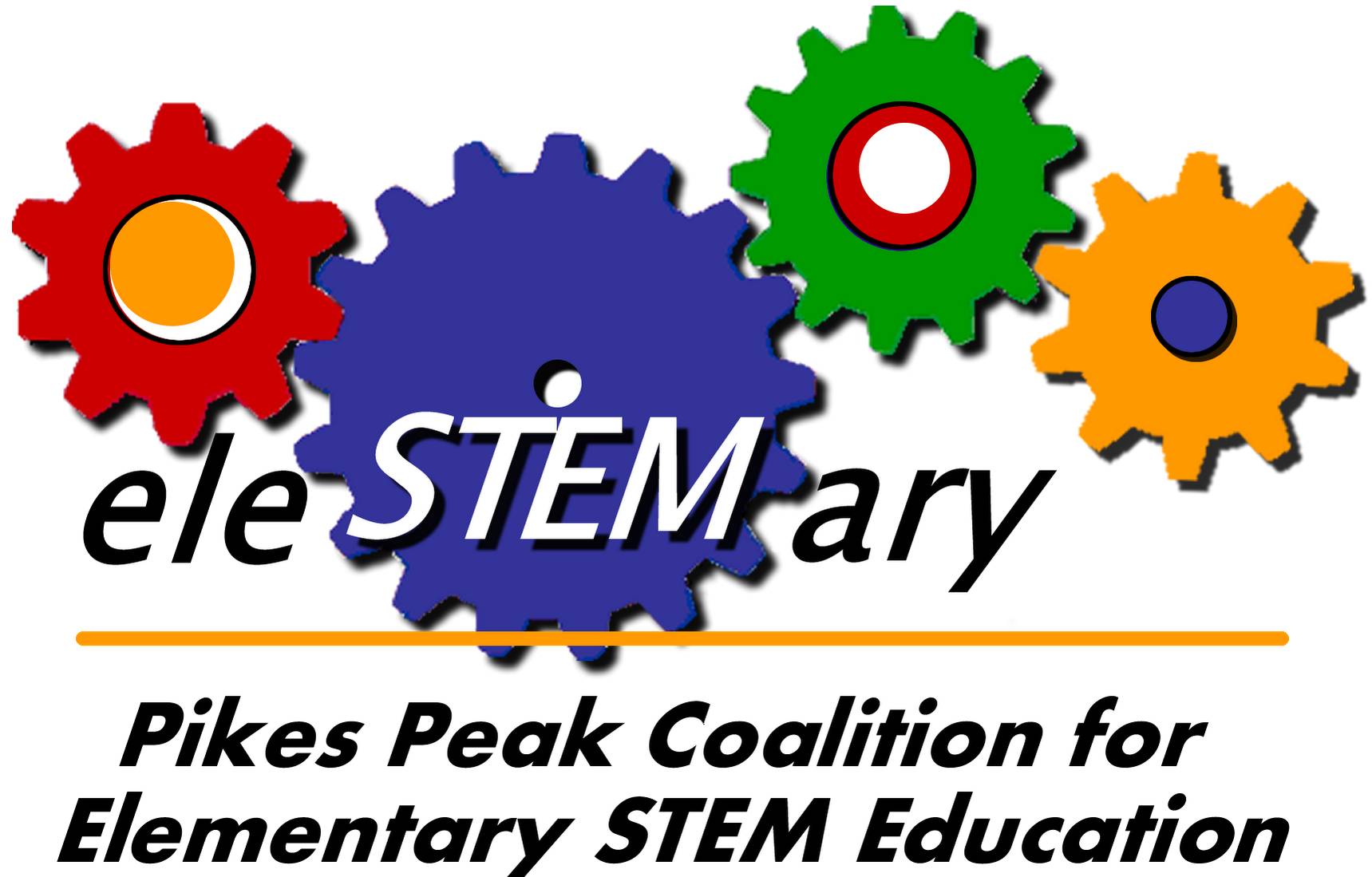
The purpose of eleSTEMary is to promote greater STEM education awareness among elementary educators as they work to incorporate 21st Century Skills contributing to the preparation of scientifically and technologically literate citizens and future workforce.
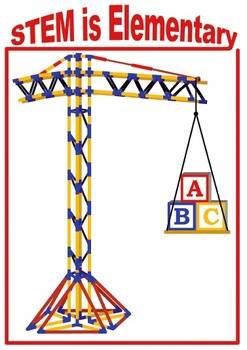
This site is designed to help users become familiar with understanding STEM and its integration into the pre-K - 6 standards-based curriculum. Integrated lessons, resources, professional development opportunities and other events can be found relating to elementary STEM.

One-Stop STEM Shop that includes the latest, vetted STEM products and services. Our hands-on resources are targeted to PreK-12 students learning STEM, Robotics, 3D Printing, Drone Technology, Alternative Energy, Computer Science, Rocketry and Beyond.
[1602087506].jpg)
Designed by the National Academy of Engineering, this site for educators (grades preK-12) provides information and videos on engineering and the engineering design process along with connections to an on-line community.

Engineers have a hand in designing, creating or modifying nearly everything around us. Find out more in this growing collection of 1900+ free, teacher-tested, standards-based K-12 lessons and activities that engage students and enhance science and math learning through the use of hands-on engineering.
[1602087696].jpg)
EiE®, the award-winning curricula division of the Museum of Science, Boston, develops research-based, classroom-tested programs that empower children to become lifelong STEM learners and passionate problem solvers.
STEM education myths in early grades
This article from District Administration is about how students see more success in K-12 when they tackle STEM concepts in early grades. It lists five myths:
- Myth 1: STEM overwhelms young learners
- Myth 2: STEM overwhelms elementary school teachers
- Myth 3: We don’t have time for STEM
- Myth 4: We don’t have money for STEM
- Myth 5: The correct order is basics first, then STEM (also known as “wait until they get older”)
Open-Source Science Resources
Open-source science resources:
• Sprocket by Lucas Education Research
• CREATE for STEM Institute and SOLID Start, developed and offered through Michigan State University. Read how Kentwood Public Schools uses Create for STEM
• Michigan Open Book Project, created by Michigan teachers and includes resources for many subjects
• Inquiry Hub, developed by teachers in Denver, Colorado, the University of Colorado and Northwestern University. Read how Godwin Heights High Schools uses IHub
• OpenSciEd, created by a consortium of curriculum directors
• Carbon Time, developed through a collaboration of scientists, teachers, graduate students and IT specialists, and led by MSU (East Kentwood Freshman Center teacher Wendy Johnson contributed)
• Interactions, a collaboration between CREATE for STEM at MSU and the Concord Consortium (East Kentwood Freshman Center teacher Kristin Meyer contributed)
